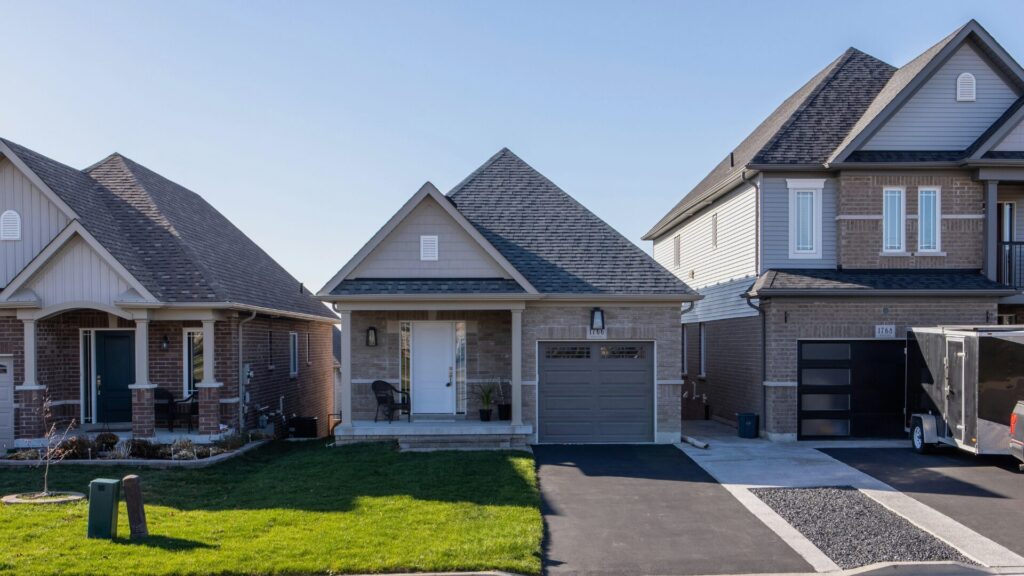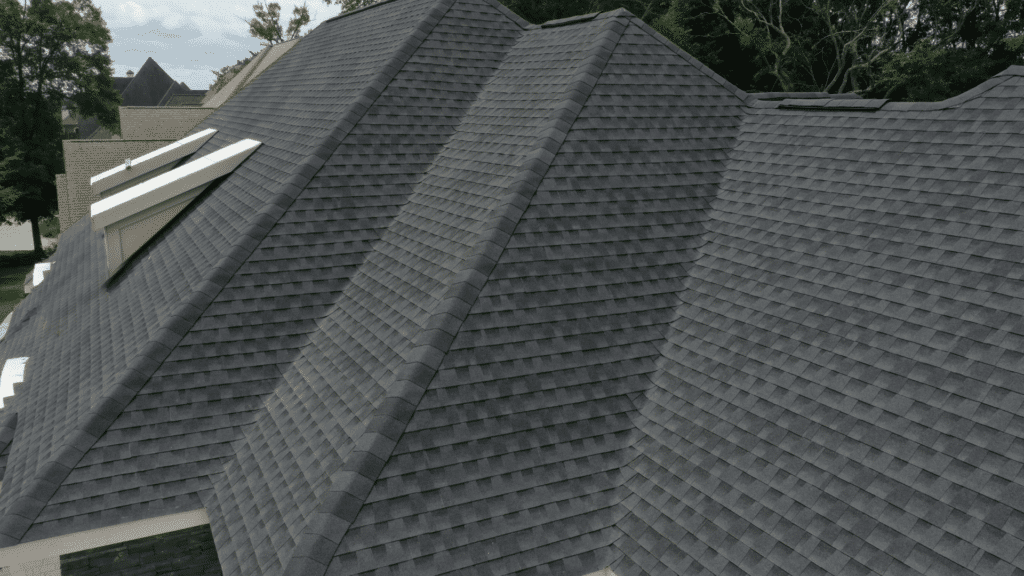Did you know Texas experiences more hail events than any other state?
In fact, Bexar County alone reported over 100 hail events in the last decade. After a major storm, your inbox and doorstep may be flooded—not with water, but with too-good-to-be-true offers from so-called “roofing experts.” But are they here to help, or to take advantage? As the hail season intensifies in San Antonio, so do the risks for property owners and managers who need swift roof repairs but might fall prey to fraudulent contractors.
Hail season in San Antonio brings more than just property damage—it brings opportunists. For homeowners and property managers, this season can be a nightmare when dealing with insurance claims and repairs. One of the most common traps? Falling victim to storm chasers posing as legitimate local roofing companies. These contractors may seem like saviors in your time of need, but often they deliver poor workmanship, leave town abruptly, and disappear with your money.
What We’ll Cover
- The dangers of storm chasers posing as local roofing companies
- How to identify legitimate, reputable roofers
- Steps to take after a storm to protect your property and your wallet
- Common pitfalls to avoid during roof repairs
- Industry insights on the future of roofing and property insurance in Texas
- Legal support options if your insurance claim is delayed or denied
Understanding the Problem: The Rise of Storm Chasers in San Antonio’s Hail Season
San Antonio is no stranger to hailstorms. In fact, it is one of the top cities in the nation for hail-related claims. Storm chasers capitalize on this seasonal weather pattern, traveling from city to city with the promise of fast, affordable roofing repairs. Their goal? Exploit the urgency property owners feel to fix their roofs before the next storm hits.
These contractors rarely hold proper business structure and reviews, liability insurance, or long-term warranties. Often, their craftsmanship is subpar, leaving property owners with repairs that fail within months. Worse yet, many of these companies operate under multiple business names to avoid accountability.
The contrast between storm chasers and reputable local roofing companies couldn’t be more significant. Local businesses are invested in the community, have a permanent presence, and are far more likely to follow through on service warranties and callbacks.
Warning signs to watch for:
- Unmarked vehicles and no local references
- Requests for full payment upfront
- Vague contracts with little detail
- High-pressure sales tactics pushing immediate decisions
- Lack of business license or insurance
These red flags can be easy to overlook in the aftermath of a storm when emotions are high, and urgency is pressing. That’s why taking a step back and assessing your options is crucial.
Choosing Local Roofing Companies You Can Trust
After a storm, it’s natural to want repairs done as quickly as possible. But taking a methodical approach can save you from expensive and stressful problems later.
What to do immediately after a storm:
- Inspect safely: Assess your property for damage only if it is safe to do so. Look for missing shingles, water spots on ceilings, or debris in your gutters.
- Document everything: Take photos and videos of any visible damage. This documentation is crucial when filing your insurance claim.
- Contact your insurance: Notify your provider about the damage and begin the claims process. Keep detailed records of all communications.
How to choose the right roofing company:
- Verify business details:
- Ask for a physical address
- Confirm local reputation and liability insurance
- Review their rating on Google, Better Business Bureau, Yelp, or another review platform
- Research and compare:
- Get at least three estimates from different roofing companies
- Read reviews and testimonials on multiple platforms
- Ask neighbors or local businesses for recommendations
- Insist on contracts:
- Ensure that the scope of work, materials used, costs, and timelines are outlined in writing
- Never sign incomplete contracts or allow blank spaces that can be altered later
By vetting contractors thoroughly and choosing local roofing companies with a solid track record, you reduce your chances of being scammed and increase the odds of receiving quality work.
Common Mistakes to Avoid: Don’t Let Hail Damage Lead to Headaches
The stress of roof damage can cloud judgment. Many property owners make decisions in haste, leading to longer-term consequences that are more expensive and harder to fix.
Common mistakes include:
- Rushing decisions: Choosing the first contractor who knocks on your door.
- Not reading the fine print: Signing unclear or deceptive agreements.
- Neglecting to involve legal counsel: Overlooking your rights as a policyholder.
These mistakes can result in incomplete repairs, wasted insurance payouts, or even legal battles down the road.
Three actionable tips to avoid these pitfalls:
- Consult professionals early: Get both a roofer and an attorney involved from the beginning.
- Delay non-essential decisions: Don’t let anyone rush you. Take the time to make informed choices.
- Educate yourself on your policy: Know your deductible, coverage limits, and how your insurance company evaluates damage. Stormlex Law Group offers free consultations to ensure you’re receiving the payout you deserve from your insurance company.
What Property Owners in San Antonio Should Know
The roofing and insurance landscape is evolving rapidly, particularly in hail-prone areas like Texas. Technology, materials, and regulatory oversight are all improving, but scammers are evolving too.
Key trends include:
- Impact-resistant roofing materials: More homeowners are opting for Class 4 shingles, which can reduce premiums and resist hail better.
- Drones inspections: These tools help insurers and contractors assess claims faster.
- Increased regulatory pressure: Texas lawmakers have begun cracking down on fraudulent contractors and strengthening requirements for licensing and transparency.
Industry leaders also stress the importance of:
- Proactive maintenance: Regular inspections can spot small problems before they become costly repairs.
- Green roofing solutions: Eco-friendly materials like cool roofs are gaining traction and can improve energy efficiency.
For property managers, these trends mean staying ahead of building code changes, exploring innovative materials, and leveraging technology to protect assets. Stormlex Law Group remains on the cutting edge of these developments and can guide clients through compliance, insurance disputes, and contractor litigation.
If There’s One Thing You Leave Today Knowing…
Vet before you regret. The most important thing a property owner or manager in San Antonio can do is take the time to thoroughly evaluate any roofing contractor after a storm. Choosing to work with licensed, insured, and reputable local roofing companies isn’t just about good craftsmanship—it’s about long-term peace of mind. And when dealing with insurance companies or legal gray areas, having Stormlex Law Group by your side means your interests are protected, and your property is prioritized.
FAQs
- What is a storm chaser roofer?
A storm chaser is a contractor who travels to storm-hit areas offering quick roofing repairs, often with questionable credentials and no ties to the local community. - Why should I hire local roofing companies instead?
Local companies have reputations to uphold, are familiar with regional building codes, and are more likely to honor warranties and offer continued service. - How do I know if a roofing company is legitimate?
Ask for licenses, insurance, and references. Check their presence on review platforms and verify their physical location in San Antonio. - What should I do right after a hailstorm damages my roof?
Document the damage, contact your insurer, and consult reputable local roofing companies before agreeing to any work. - Can my insurance deny my claim if I used a storm chaser?
Yes. If the contractor doesn’t follow proper procedures or completes subpar work, it can jeopardize your claim. - How do I avoid roofing scams in San Antonio?
Vet contractors carefully. Avoid high-pressure sales tactics and always ask for credentials and contracts in writing. - What roofing materials are best for hail-prone areas?
Impact-resistant shingles (Class 4), metal roofing, and synthetic composite materials designed to withstand hail impact. - Are free roof inspections safe?
Only if they’re offered by vetted, local companies. Be cautious and always request a written report. - What legal help is available if my insurance company delays or denies my claim?
Stormlex Law Group specializes in property damage claims and can help you dispute unfair assessments or denials. - How can I find the best local roofing companies in San Antonio?
Look for well-reviewed, BBB-accredited businesses with a solid local presence. Seek referrals from neighbors or consult Stormlex Law Group for trusted recommendations.

















